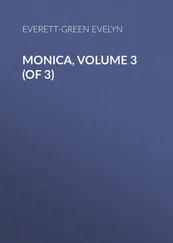Friedrich Max Müller - Chips from a German Workshop, Volume 1
Здесь есть возможность читать онлайн «Friedrich Max Müller - Chips from a German Workshop, Volume 1» — ознакомительный отрывок электронной книги совершенно бесплатно, а после прочтения отрывка купить полную версию. В некоторых случаях можно слушать аудио, скачать через торрент в формате fb2 и присутствует краткое содержание. Жанр: foreign_prose, foreign_antique, на английском языке. Описание произведения, (предисловие) а так же отзывы посетителей доступны на портале библиотеки ЛибКат.
- Название:Chips from a German Workshop, Volume 1
- Автор:
- Жанр:
- Год:неизвестен
- ISBN:нет данных
- Рейтинг книги:3 / 5. Голосов: 1
-
Избранное:Добавить в избранное
- Отзывы:
-
Ваша оценка:
- 60
- 1
- 2
- 3
- 4
- 5
Chips from a German Workshop, Volume 1: краткое содержание, описание и аннотация
Предлагаем к чтению аннотацию, описание, краткое содержание или предисловие (зависит от того, что написал сам автор книги «Chips from a German Workshop, Volume 1»). Если вы не нашли необходимую информацию о книге — напишите в комментариях, мы постараемся отыскать её.
Chips from a German Workshop, Volume 1 — читать онлайн ознакомительный отрывок
Ниже представлен текст книги, разбитый по страницам. Система сохранения места последней прочитанной страницы, позволяет с удобством читать онлайн бесплатно книгу «Chips from a German Workshop, Volume 1», без необходимости каждый раз заново искать на чём Вы остановились. Поставьте закладку, и сможете в любой момент перейти на страницу, на которой закончили чтение.
Интервал:
Закладка:
5. They make the mountains tremble, they drive apart the forest trees. Go, divine Maruts, whither you will, with all your progeny, like those intoxicated.
6. You have harnessed the spotted deer to your chariot; the red deer yoked between them, (aids to) drag the car: the firmament listens for your coming, and men are alarmed.
7. Rudras, we have recourse to your assistance for the sake of our progeny: come quickly to the timid Ka n va, as you formerly came, for our protection.
8. Should any adversary, instigated by you, or by man, assail us, withhold from him food and strength and your assistance.
9. Pra k etasas, who are to be unreservedly worshipped, uphold (the sacrificer) Ka n va: come to us, Maruts, with undivided protective assistances, as the lightnings (bring) the rain.
10. Bounteous givers, you enjoy unimpaired vigour: shakers (of the earth), you possess undiminished strength: Maruts, let loose your anger, like an arrow, upon the wrathful enemy of the Rishis.
25
'History of Ancient Sanskrit Literature,' p. 20 note.
26
This hymn was first pointed out by Professor Roth in a dissertation on the Atharva-veda (Tübingen, 1856), and it has since been translated and annotated by Dr. Muir, in his article on the 'Vedic Theogony and Cosmogony,' p. 31.
27
During violent thunderstorms the natives of New Holland are so afraid of War-ru-gu-ra, the evil spirit, that they seek shelter even in caves haunted by Ingnas, subordinate demons, which at other times they would enter on no account. There, in silent terror, they prostrate themselves with their faces to the ground, waiting until the spirit, having expended his fury, shall retire to Uta (hell) without having discovered their hiding-place.—'Transactions of Ethnological Society,' vol. iii. p. 229. Oldfield, 'The Aborigines of Australia.'
28
Acts xxii. 30, xxiii. 6.
29
Professor Roth, after quoting several passages from the Veda in which a belief in immortality is expressed, remarks with great truth: 'We here find, not without astonishment, beautiful conceptions on immortality expressed in unadorned language with child-like conviction. If it were necessary, we might here find the most powerful weapons against the view which has lately been revived, and proclaimed as new, that Persia was the only birthplace of the idea of immortality, and that even the nations of Europe had derived it from that quarter. As if the religious spirit of every gifted race was not able to arrive at it by its own strength.'—('Journal of the German Oriental Society,' vol. iv. p. 427.) See Dr. Muir's article on Yama, in the 'Journal of the Royal Asiatic Society,' p. 10.
30
M. M., Die Todtenbestattung bei den Brahmanen 'Zeitschrift der Deutschen Morgenländischen Gesellschaft,' vol. ix. p. xii.
31
Dr. Muir, article on Yama, p. 18.
32
'Christ and other Masters.' An Historical Inquiry into some of the chief Parallelisms and Contrasts between Christianity and the Religious Systems of the Ancient World, with special reference to prevailing Difficulties and Objections. By Charles Hardwick, M.A., Christian Advocate in the University of Cambridge. Parts I, II, III. Cambridge, 1858.
33
B r ihad-âra n yaka, IV. 5, 15 ed. Roer, p. 487.
34
Ibid. p. 478. K hândogya-upanishad, VIII. 3, 3-4.
35
In writing the above, I was thinking rather of the mental process that was necessary for the production of such words as bráhman, âtman, and others, than of their idiomatic use in the ancient literature of India. It might be objected, for instance, that bráhman, neut. in the sense of creative power or the principal cause of all things, does not occur in the Rig-veda. This is true. But it occurs in that sense in the Atharva-veda, and in several of the Brâhma n as. There we read of 'the oldest or greatest Bráhman which rules everything that has been or will be.' Heaven is said to belong to Bráhman alone (Atharva-veda X. 8, 1). In the Brâhma n as, this Bráhman is called the first-born, the self-existing, the best of the gods, and heaven and earth are said to have been established by it. Even the vital spirits are identified with it ( S atapatha-brâhma n a VIII. 4, 9, 3).
In other passages, again, this same Brahman is represented as existing in man (Atharva-veda X. 7, 17), and in this very passage we can watch the transition from the neutral Bráhman into Bráhman, conceived of as a masculine:
Ye purushe bráhma vidus te vidu h paramesh t hina m ,
Yo veda paramesh t hina m , ya s k a veda pra g âpatim,
G yesh t ha m ye brãhma n a m vidus, te skambham anu sa m vidu h .
'They who know Bráhman in man, they know the Highest,
He who knows the Highest, and he who knows Pra g âpati (the lord of creatures),
And they who know the oldest Brãhma n a, they know the Ground.'
The word Brãhma n a which is here used, is a derivative form of Bráhman; but what is most important in these lines is the mixing of neuter and masculine words, of impersonal and personal deities. This process is brought to perfection by changing Bráhman, the neuter, even grammatically into Bráhman, a masculine,—a change which has taken place in the Âra n yakas, where we find Bráhman used as the name of a male deity. It is this Bráhman, with the accent on the first, not, as has been supposed, brahmán, the priest, that appears again in the later literature as one of the divine triad, Bráhman, Vish n u, S iva.
The word bráhman, as a neuter, is used in the Rig-veda in the sense of prayer also, originally what bursts forth from the soul, and, in one sense, what is revealed. Hence in later times bráhman is used collectively for the Veda, the sacred word.
Another word, with the accent on the last syllable, is brahmán, the man who prays, who utters prayers, the priest, and gradually the Brahman by profession. In this sense it is frequently used in the Rig-veda (I. 108, 7), but not yet in the sense of Brahman by birth or caste.
Интервал:
Закладка:
Похожие книги на «Chips from a German Workshop, Volume 1»
Представляем Вашему вниманию похожие книги на «Chips from a German Workshop, Volume 1» списком для выбора. Мы отобрали схожую по названию и смыслу литературу в надежде предоставить читателям больше вариантов отыскать новые, интересные, ещё непрочитанные произведения.
Обсуждение, отзывы о книге «Chips from a German Workshop, Volume 1» и просто собственные мнения читателей. Оставьте ваши комментарии, напишите, что Вы думаете о произведении, его смысле или главных героях. Укажите что конкретно понравилось, а что нет, и почему Вы так считаете.












